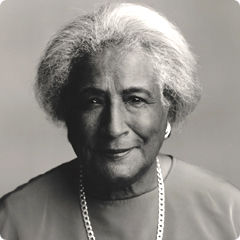 Nicknamed the “King of Torts,” Joseph Jamail was one of the most successful practicing attorneys in America, and a consummate Texan. In December, he ensured his legacy outside of the Lone Star State and made a $3 million gift to the Columbia School of Journalism. The gift will be dedicated to the renovation of the school’s main lecture hall, and establish an annual lecture devoted to justice and civil rights—themes that have run though his life and career. The refurbished space will be renamed the Joseph D. Jamail Lecture Hall.
Nicknamed the “King of Torts,” Joseph Jamail was one of the most successful practicing attorneys in America, and a consummate Texan. In December, he ensured his legacy outside of the Lone Star State and made a $3 million gift to the Columbia School of Journalism. The gift will be dedicated to the renovation of the school’s main lecture hall, and establish an annual lecture devoted to justice and civil rights—themes that have run though his life and career. The refurbished space will be renamed the Joseph D. Jamail Lecture Hall.
The annual lecture will honor John Peter Zenger, a printer in 18th Century New York whose trial on libel charges established truth as a defense in such cases, a precedent that stands today.
The gift also honors Journalism School Dean Steve Coll. The two first met 30 years ago when Coll interviewed him and found him to be “brilliant, open, funny, wild, and big-hearted.”
Jamail, who passed away on December 23 at the age of 90, is perhaps best known for the 1984 case in which Pennzoil won a $10.53 billion verdict against Texaco; the settled amount totaled $3 billion. At the time, it was the largest ever handed down by a jury. Jamail’s Texas-sized demeanor won him hundreds of other cases at trial or settlement, along with an almost mythical reputation. Attorneys and law students at Columbia and beyond have passed around the Supreme Court of Delaware’s rebuke of his
“outrageous” behavior during a deposition (he told an opposing lawyer he “could gag a maggot off a meat wagon”) or the YouTube video of him in action titled simply “Texas-Style Deposition” (too colorful to quote here).
Despite earning billions of dollars through his success in the courtroom, Jamail never forgot his roots. Born in Houston to Lebanese immigrants during the Great Depression, he passionately and aggressively represented countless poor and middle class plaintiffs in lawsuits against corporations. His many generous
donations to the University of Texas, Rice University, and other schools, along with hospitals, city parks, and other causes, were transformative in his home state. The University of Texas erected two statues in his honor, and the Longhorns even play their home football games on Joe Jamail Field.
“I admired him deeply and am very pleased that Columbia University’s trustees have agreed to memorialize his life, career and values with the named lecture hall and lecture series at our school,” Coll said.


 Jurist
Jurist 


